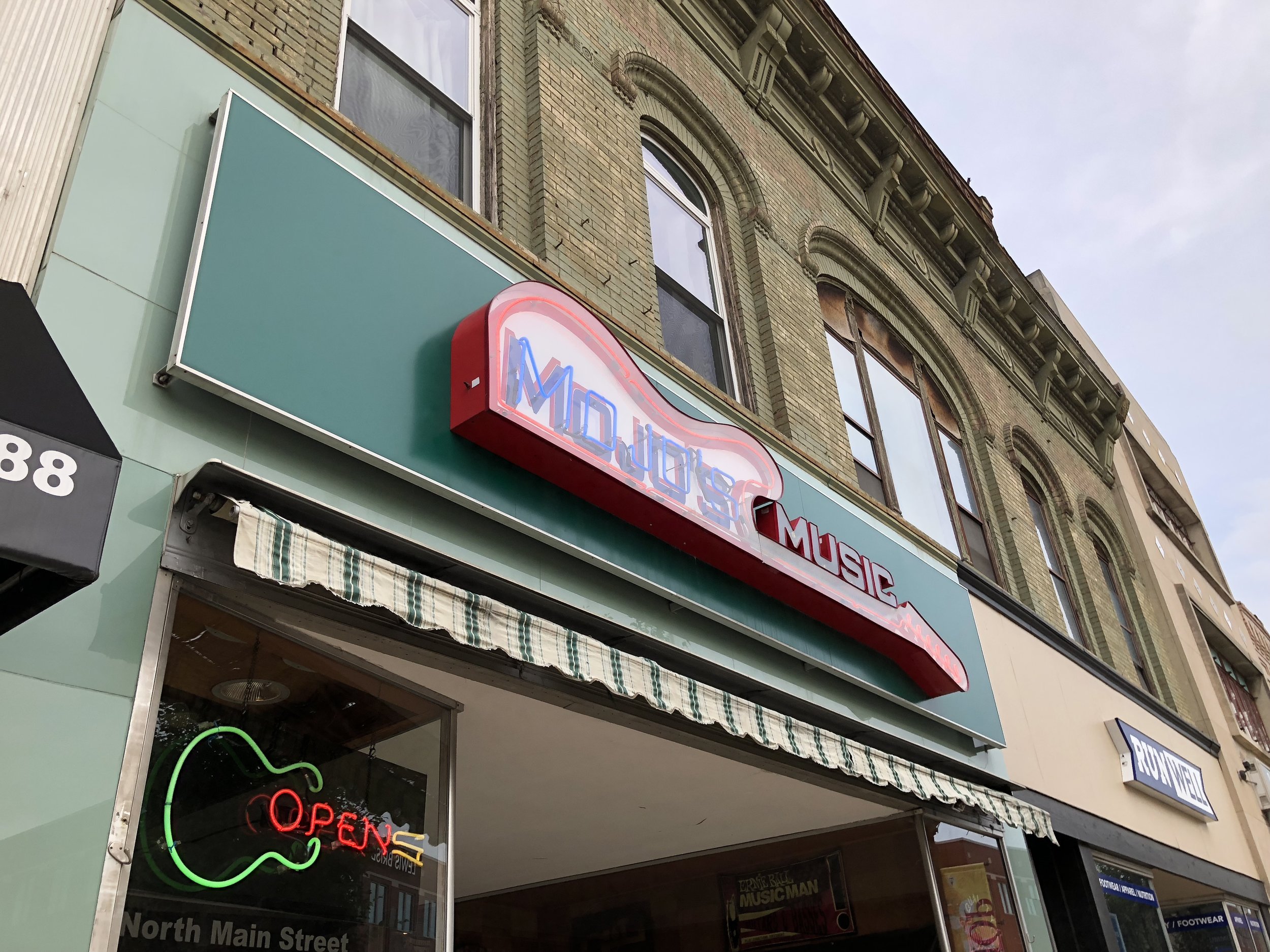While on a business trip to mid-America, on the plane I was checking out Guitar World’s Shop Talk post in their October 2018 issue of the magazine. Every month they highlight an interesting guitar store, and talk to the owner about how they’re doing as a guitar store, what their favorite guitar is they carry, and more.
I was able to visit Mojo’s Music in Edwardsville, IL and was pleasantly surprised by the awesome amount of guitars they had that I hadn’t tried yet. Everything from a whole new batch of Suhrs to an Ernie Ball St. Vincent signature model, and a fun Ibanez with a roasted maple neck, which played great. It reminded me of the jems I’ve found at stores in my own state of New Jersey.
If you head into Lark Street Music in Teaneck, you’re likely to find guitars ranging from one to tens of thousands of dollars, boutique amps, and a plethora of other stringed instruments. If you ask nice enough, you can even plug them in and hear how they sound. Pro tip: in any guitar store, ask before taking a guitar off the wall.
As more and more stores are closing and losing out to bigger outfits like Amazon, Walmart, and more, I think it’s very important we still visit these indie guitar stores. Heck, even Sam Ash, where I worked at for over 6 years is still family owned!
What can you expect?
You can expect unique and interesting staff (you have to be a special type of crazy to work retail, and especially music retail), gear you might have never seen before, and customer service that isn’t paralleled in a “big box” store.
In smaller guitar shops you’ll find that employees have knowledge of what works for each individual player that comes through the door. I’ll never forget going into a big box guitar store back in the day and asking to plug in a Gibson B.B. King Lucille sig model, and the employee plugged me into a B-52 half stack. Not exactly something B.B. would use.
Customer service is incredibly important, and after frequenting a store a few times, you’ll start to develop a great relationship with the employees in each of the different departments. Smaller stores usually have employees that have been there for longer, and will have a lot more knowledge about the instruments they’re selling.
You also have the question of, how do you really know what a guitar sounds like or if you’ll connect with it, if you haven’t plugged it in or played it in person? When I was picking up a Fender Thinline Tele I remember going through 3 different guitars of the same model before settling on one that I still have with me to this day.
Even more reasons
We’re talking about indie guitar shops, and why they’re so important to keep alive, but think about your favorite hardware store, toy store, book store. Many of our favorite stores are closing up shop - whether it be your favorite music store, to bigger places like Tower Records, Blockbuster Video, Toys “R” Us, and many more.
Some places just work better as brick and mortar stores, rather than their online counterparts. It’s incredibly fun to go to a town you’ve never been to before, and find a new to you guitar store, with that pedal you’ve been looking for, an amp, guitar, or some other piece of obscure gear you thought you’d never find.
I remember when I was first learning guitar, not only did I go every week to a small guitar shop, but I found one of the most influential guitar teachers I’ve ever had in my life, who ended up helping me get into college for jazz and classical guitar. It’s rare you’ll find some of these players or teachers anywhere else.
Before they dissapear
Let’s keep small guitar shops alive! What’s your favorite indie guitar shop to go to? Let me know by reaching out on Twitter, Facebook, or on Instagram.


